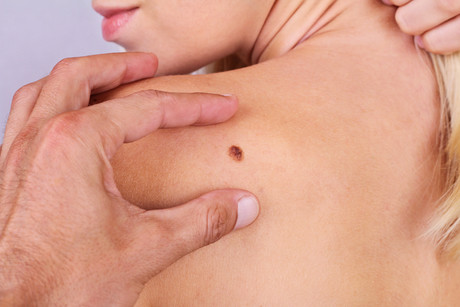Breakthrough blood test to detect melanoma early

Australian researchers have developed what is claimed to be the world’s first blood test capable of detecting melanoma in its early stages — a breakthrough that is expected to save thousands of lives, as well as millions of dollars for the health system.
Australia has the second-highest rate of melanoma in the world, with 14,000 new diagnoses and almost 2000 deaths each year. According to lead researcher Pauline Zaenker, a PhD candidate at Edith Cowan University (ECU), identifying melanoma early is the best way to prevent these deaths.
“Patients who have their melanoma detected in its early stage have a five-year survival rate between 90 and 99%, whereas if it is not caught early and it spreads around the body, the five-year survival rate drops to less than 50%,” she said.
“This is what makes this blood test so exciting as a potential screening tool, because it can pick up melanoma in its very early stages when it is still treatable.”
Currently, the main way melanoma is detected is via a visual scan by a clinician, with any areas of skin that are of concern excised and sent for a biopsy. But relying on biopsies alone can be problematic, according to Zaenker, who noted that three out of every four come back negative for melanoma.
“The biopsies are quite invasive, with a minimum of 1 cm by 1 cm of skin excised from the patient,” she said.
“They are also costly, with previous research showing that the Australian health system spends $201 million on melanoma each year with an additional $73 million on negative biopsies.”
Unlike biopsies, the blood test developed by Zaenker and her colleagues works by detecting the autoantibodies the body produces in response to the melanoma. Zaenker explained, “The body starts producing these antibodies as soon as melanoma first develops, which is how we have been able to detect the cancer in its very early stages with this blood test.
“We examined a total of 1627 different types of antibodies to identify a combination of 10 antibodies that best indicated the presence of melanoma in confirmed patients relative to healthy volunteers.
“No other type of biomarker appears to be capable of detecting the cancer in blood at these early stages.”
The blood test thus provides doctors with a powerful new tool to detect melanoma before it spreads throughout the body, with promising results so far — in a trial involving 105 people with melanoma and 104 healthy controls, the blood test was able to detect early-stage melanoma in 81.5% of cases. The study was published in the journal Ocotarget, and a follow-up clinical trial to validate the findings is currently being organised.
“We envision this taking about three years,” said Professor Mel Ziman, Head of ECU’s Melanoma Research Group. “If this is successful, we would hope to be able to have a test ready for use in pathology clinics shortly afterwards.
“The ultimate goal is for this blood test to be used to provide greater diagnostic certainty prior to biopsy and for routine screening of people who are at a higher risk of melanoma, such as those with a large number of moles or those with pale skin or a family history of the disease.”
The development of the blood test was funded through a $452,000 grant from the National Health and Medical Research Council (NHMRC). The blood test has since been submitted for an international patent, while a $200,000 grant from Tour de Cure will be used to progress the research.
Breakthrough blood test for endometriosis developed
Scientists identified 10 protein biomarkers, or 'fingerprints' in the blood, that can be...
A simple finger prick can be used to diagnose Alzheimer's
A new study is paving the way for a more accessible method of Alzheimer's testing, requiring...
Experimental blood test detects early-stage pancreatic cancer
The new test works by detecting two sugars — CA199.STRA and CA19-9 — that are...




